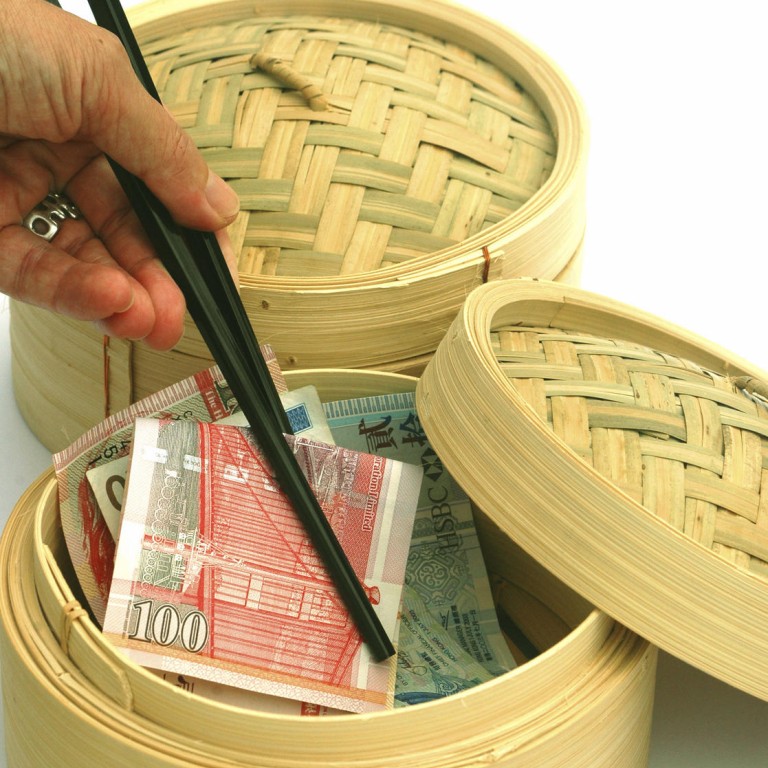
Investors can still profit
Even in an uncertain climate, steady income is possible, writes John Cremer
With low growth prospects and historically low interest rates, private investors in Hong Kong have to work a little harder than usual to make a reasonable return on their money. But even in a climate of uncertainty, there are still plenty of options to achieve a steady
5 per cent plus per annum, without venturing into high-risk territory, or waiting for your ship to come in.
"Within the fixed-income universe, we recommend selected bank credits, emerging market bonds, and high-yield bonds," says Fan Cheuk-wan, managing director and head of research, Asia-Pacific, for Credit Suisse Private Banking. "On equities, we remain positive on high-dividend stocks, which are more defensive vehicles, but offer yield for investors seeking steady returns at controlled risk."
Here, there are benefits of diversification within an equity portfolio and the prospect of a reliable income. With little sign of interest rates being bumped up, gold is also expected to maintain its strength over the next six to 12 months, as a direct result of quantitative easing measures and the precious metal's appeal as a hedge against inflation.
Where appropriate, Fan would also advise investors
to deploy excess cash to buy undervalued yet fundamentally attractive equities. In some cases, the valuations are "compelling" compared to other asset classes.
"Overall, we favour US equities due to the relative resilience of the US economy and corporate earnings," Fan says. "And some Asian equities offer crisis-low valuations and strong secular growth drivers."
Assuming the economy won't accelerate any time soon, investors are advised to steer away from producers of industrial metals and construction materials. Such categories will suffer from weak demand and inventory overhangs, promising poor returns and limited upside potential.
For Maggie Tsui, deputy head of investment services, Asia, for BNP Paribas, the key recommendation since the start of the year has been to focus on income generation and to use mainly defensive tactics.
"People who followed our recommendations to put money in high-grade bonds and have some exposure to Asian local currency bonds will have a nice return of around 8 to 10 per cent, plus a 4 to 6 per cent appreciation on the bond investment," Tsui says. "Client sentiment and expectations have changed since the peak years; most are now happy with 6 to 7 per cent returns."
She notes too that US indices are back near 2008 highs, so any hopes of a run-up there should be suitably tempered. However, value can be found in equities. At present, the key is to target sectors like utilities and consumer goods, while holding back on industrials and basic resources, which depend more on the economic cycle.
"Conventional investment thinking still applies," Tsui says. "It is about being diversified and having proper asset allocation. Remember, the financial crisis was triggered by over-gearing and wrongdoing in certain areas. [The principles of] good investing haven't changed."
Looking ahead, Andrew Williamson, head of investment strategies and advisory products, APAC, UBS Wealth Management, doesn't see stellar growth in Hong Kong equities, but he does believe the outlook is not that bad. Having found a floor, the local market should gradually move higher, not least because so much fear has been built in with the backwash from Europe and worries about the health of the Chinese economy.
"There is a lot for investors to be concerned about, but China is our preferred market within Asia and our preferred emerging market," Williamson says. "It has notably underperformed, so if you are now underweight on exposure to China, start thinking about building a position."
In developed markets around the world, where valuations are still below long-run averages, he suggests it is now "not a bad time" to buy in. In particular, the bank is focusing on certain themes. These include "smart mobility", covering companies such as Samsung, and Western firms that derive a fair proportion of their earnings from Asia. In contrast, there is a feeling that consumer discretionaries are starting to look a bit expensive, and many companies with a global reach fall under that umbrella.
"We are cautious on the way we play it, with a focus still on high-dividend yield stocks with robust balance sheets," Williamson says. "In fixed-income, we see the three most positive areas as US high-yield bonds delivering around 7 per cent, investment-grade corporates, and emerging market corporates."
